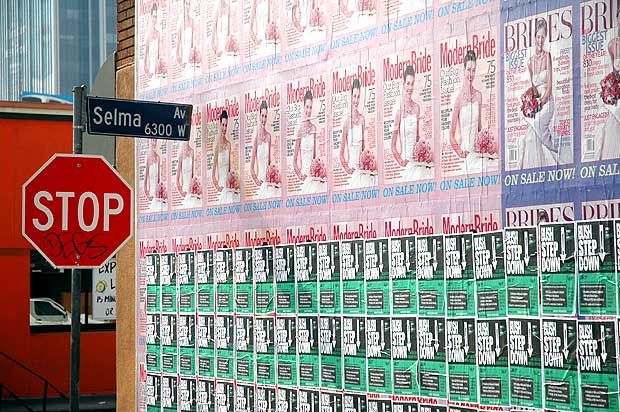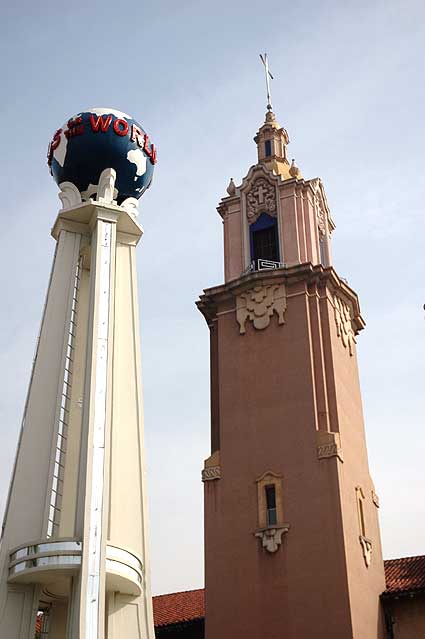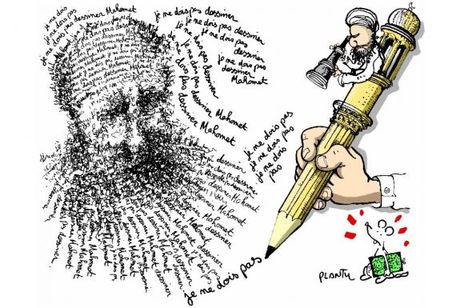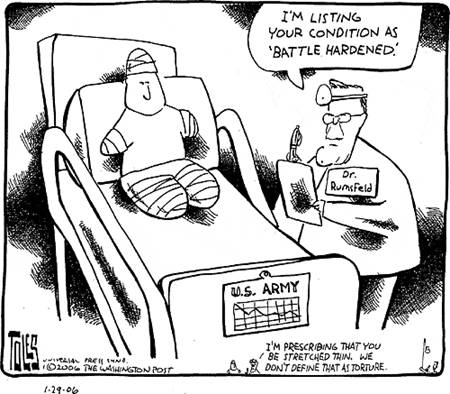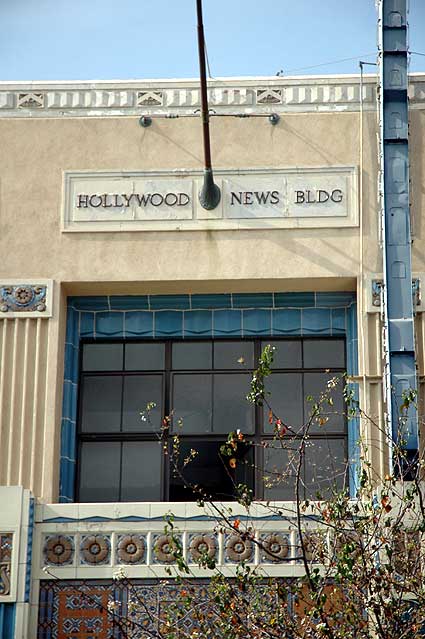Topic: The Law
Question Time: The Attorney General Smiles
Each week should start off with a dramatic political event that sweeps all the other news off the table. Monday, February 6, 2006, we got that - a Watergate-style senate hearing with big issues, angry words, evasions, posturing - and, after the hearings, more of the same as the participants popped up on all the cable new talks shows with refinements of the big issues, angry words, evasions and posturing. The New York Times summary opened with this - "Attorney General Alberto R. Gonzales told skeptical senators today that the Bush administration's domestic eavesdropping program is legal, constitutional and vital to national security in a time of terrorism."
They were skeptical (some of them, even some key Republicans). It didn't go that well, but it was a fine day for political junkies and folks who think about where this country is headed - full of heated exchanges about the constitution and the law and who has the power to decide what they mean, and who doesn't. These are core issues, and the event made up for the dreary big story from the previous evening, the Pittsburgh Steelers winning Super Bowl XL in Detroit. (Even those of us born and raised in Pittsburgh were forced to admit it was a sloppy game by two teams playing badly, with bad calls from the officials - not an XL game but more of a S.)
Of course there was other Monday news. The Cartoon Wars became even more intense and deadly, as the BBC reported Four Killed In Cartoon Protests. Yes, that's a terrible headline with a badly placed modifier, evoking the film "Who Framed Rodger Rabbit" and all that careening through Toontown - but this is serious stuff.
See Christopher Hitchens here and his "case for mocking religion" -
Hitchens, addressing all the threats of violence for what was published, argues civil society means that "free expression trumps the emotions of anyone to whom free expression might be inconvenient," and says it's "depressing to have to restate these obvious precepts," and of our government's tut-tut reaction says it's "positively outrageous that the administration should have discarded them at the very first sign of a fight."As it happens, the cartoons themselves are not very brilliant, or very mordant, either. But if Muslims do not want their alleged prophet identified with barbaric acts or adolescent fantasies, they should say publicly that random murder for virgins is not in their religion. And here one runs up against a curious reluctance. ... In fact, Sunni Muslim leaders can't even seem to condemn the blowing-up of Shiite mosques and funeral processions, which even I would describe as sacrilege.
... The question of "offensiveness" is easy to decide. First: Suppose that we all agreed to comport ourselves in order to avoid offending the believers? How could we ever be sure that we had taken enough precautions? On Saturday, I appeared on CNN, which was so terrified of reprisal that it "pixilated" the very cartoons that its viewers needed to see. And this ignoble fear in Atlanta, Ga., arose because of an illustration in a small Scandinavian newspaper of which nobody had ever heard before! Is it not clear, then, that those who are determined to be "offended" will discover a provocation somewhere? We cannot possibly adjust enough to please the fanatics, and it is degrading to make the attempt.
On the other hand, a long item from Tristero at Hullabaloo argues this about the cartoons as a "statement" about the absolute rightness of free speech -
And on and on it goes.The events of the cartoon riots, in all their mad senselessness and fatal tragedy, reflect - epitomize - some of the worst but most virulently widespread presumptions of our time: the arrogance and shallowness of white boy moralizing; the maniacal self-destructive sense of sheer helplessness that descends into pointless murder, destruction, and horror.
As I see it, both the decision to commission and publish the cartoons and the riots that followed simply defy comprehension not because one couldn't predict the consequences but because one could, with depressing ease. Unless they come to their senses, the white do-gooders are gonna get us all killed in their crusades. And the recipients of all this do-gooding are gonna do the exact same thing when their fury at the do-gooders is cynically stoked and channeled into senseless destructiveness and murder.
In short, no more cartoon riots. No more cartoon editors. No more cartoon evil cavemen. And no more cartoon American administrations. It's time not to listen to what our gut says, it's time to give it some Alka-Seltzer and get it to shut up so we can think.
There was other news - Bush Proposes $2.77 Trillion Budget, with the subhead "More money sought for defense, cuts in most other areas..." That's the plan. Big boosts for defense spending - and cutbacks for education and Medicare and programs for the poor and for the Centers for Disease Control in Atlanta and for all the other stuff for the unlucky and "irresponsible." And Bush insists that current and upcoming tax cuts for the very wealthy be made permanent. The consensus seems this one will be hard to get through congress. Some of the unlucky, and many who earn less than five hundred grand a year, actually vote - and this may look, to them, like a plan somewhere between mean-spirited wrong-headed nastiness and sheer madness. Congressmen and some Senators face the voters late in the year, and even with clever gerrymandering and electronic voting machines they sense potential trouble. Will this fly? In the House, Tom DeLay is no longer around to twist arms, and, in the Senate, Bill Frist lost his mojo a long time ago. It's a story in the making.
And Iran is still there, seemingly on its way to building nuclear weapons. The International Atomic Energy Agency (IAEA) late the week before referred Iran to UN Security Commission for some sort of action. Iran tossed them out, shut off all monitoring, dropped out of the nonproliferation treaties, and threatened sanctions, and we said diplomacy was necessary but suggested military action was possible. (Sounds familiar.) Wesley Clark explains here what the military action would look like - over four thousand precision bombings as all the sites are so scattered, and, where the sites are co-located with hospitals and schools, the insertion of special-ops teams on the ground for even more precision. No invasion. Norman Solomon here explains what happens next - regional war or worse - and says, given who's in charge here, and there, that'll happen. It's another story in the making.
The immediate story was the Senate hearing.
Of course, to set the stage properly for that, one should note this from Newsweek hit the wires over the weekend before Monday's print distribution, just a little something from the administration, specifically the Justice Department -
Ah, theoretical contingencies.Steven Bradbury, acting head of the department's Office of Legal Counsel, went to a closed-door Senate intelligence committee meeting last week to defend President George W. Bush's surveillance program. During the briefing, said administration and Capitol Hill officials (who declined to be identified because the session was private), California Democratic Sen. Dianne Feinstein asked Bradbury questions about the extent of presidential powers to fight Al Qaeda; could Bush, for instance, order the killing of a Qaeda suspect known to be on U.S. soil? Bradbury replied that he believed Bush could indeed do this, at least in certain circumstances.
... A Justice Department official, who asked not to be ID'd because of the sensitive subject, said Bradbury's remarks were made during an "academic discussion" of theoretical contingencies. In real life, the official said, the highest priority of those hunting a terrorist on U.S. soil would be to capture that person alive and interrogate him. At a public intel-committee hearing, Feinstein was told by intel czar John Negroponte and FBI chief Robert Mueller that they were unaware of any case in which a U.S. agency was authorized to kill a Qaeda-linked person on U.S. soil. Tasia Scolinos, a Justice Department spokeswoman, told NEWSWEEK: "Mr. Bradbury's meeting was an informal, off-the-record briefing about the legal analysis behind the president's terrorist-surveillance program. He was not presenting the legal views of the Justice Department on hypothetical scenarios outside of the terrorist-surveillance program."
You see, the Justice Department and the administration claims the president has the authority to declare citizens "enemy combatants" with no appeal of that declaration (you can't claim a mistake has been made), to hold them without charges or council for as long as the Justice Department and the administration deem necessary, and to hold them with no communication with anyone, and never have a trial or hearing of any kind - and neither the courts or congress can object, as this in one of the plenary powers a president has in time of war, or in this case, in time of what everyone seems to think is pretty much the same as a war, given that "authorization of force" to deal with terrorism almost five years ago. Close enough. Now on the president's word alone, citizens can be selected and killed, as due process would not apply? So says the Justice Department's acting head of the Office of Legal Counsel. Theoretically.
See this - "...lettres de cachet were letters signed by the king of France, countersigned by one of his ministers, and closed with the royal seal, or cachet. They contained orders directly from the king, often to enforce arbitrary actions and judgments that could not be appealed." It's a fourteenth century French thing, but really made useful by Louis XVI - but then they had that revolution. But then Napoleon brought them back. Then on April 3, 1814, they were gone again. So was he.
They're back - and you didn't think these guys in Washington liked anything French.
Also to set the stage, the day before the Gonzales hearing on the NSA program, Senate Judiciary Committee chairman Arlen Specter, the Republican from Pennsylania set to run the hearing went wild (sort of), saying the administration's legal justifications for its warrantless spying program have been "strained and unrealistic" - so far. And he opened the hearing (see here) with the idea the administration may have violated federal law's "forceful and blanket prohibition against any electronic surveillance without a court order."
Well, CNN covered the hearing fairly - who said what - and Emily Bazelon offers Cowardly Lions: Congress talks tough to Gonzales - and then turns and runs.
The hearing was odd.
Gonzales said what everyone expected - congress cannot override a president's battlefield decisions, as the constitution says the president is the commander-in-chief of the armed forces, so what he did was legal, as all the world is a battlefield now, even Akron and Tulsa one assumes, and anyway, congress told him to act as commander-in-chief of the armed forces when they overwhelmingly passed that "authorization of force" thing a few years back. So it's all "legal and reasonable." That was the whole of what Gonzales had to say - and no, congress could not have access to the administration's internal legal findings that this was how things were.
Case closed? Hardly.
Gonzales got hammered. No, the "authorization of force" in no way posited all the world is a battlefield now, including here at home - the administration asked for that and it was denied. Gonzales smiled. Everyone knows (he assumes) all the world is a battlefield now, including here at home.
Gonzales was asked why not use the existing law and get the warrants. He smiled - takes too much time, and not relevant anyway.
Why not ask for a change in the law if the NSA was using new techniques not covered in the 1978 law as amended so many times. He smiled. The law was not applicable here.
Why not inform congress of what was up, as required by law? He smiled. The law was not applicable here, and they really did inform a few people - not the ones listed in the law, but close enough.
Senator Leary - "No man is above the Law." Gonzales smiled - as that obviously depends on how you read the constitution.
Senator Kennedy said that Democrats and Republicans are "united in their desire to keep Americans safe" but suggested if it turns out that this warrantless spying program is ruled illegal - if a court is forced to throw out evidence against an accused terrorist because it was obtained unlawfully - then wouldn't we all be less safe? The question was blunt - "What if you're wrong?" Kennedy didn't mention it but two defendants actually charged with crimes last week filed motions for suppression of evidence based on the claim that the evidence was obtained illegally by the NSA sweeps. Gonzales smiled he said the administration wasn't wrong.
Judiciary Committee chairman Arlen Specter - "There are a lot of people who think you're wrong. What do you have to lose if you're right?"
Gonzales - "Obviously we would consider and are always considering methods of fighting the war effectively against al Qaeda."
That's an answer?
Senator Russ Feingold had another axe to grind. Last year during Gonzales' confirmation hearing he asked Gonzales, directly, whether Gonzales believed that the president has the power "to authorize warrantless searches of Americans' homes and wiretaps of their conversations in violation of the criminal and foreign intelligence surveillance statutes of this country." Gonzales shrugged off the question then as "hypothetical" - but obviously Gonzales knew that was just what was going on at the time. Russ was not pleased - so he asked about that
Gonzales said, now, that of course the president had authorized "warrantless wiretaps" - but since he hadn't done anything "in violation of the criminal and foreign intelligence surveillance statutes of this country," asking about the power to engage in such a violation had been in fact a "hypothetical" question back then - and he told the truth then, and he was telling it now.
The guy is good.
Next was Lindsey Graham, Republican, South Carolina - if the administration thought congress somehow or other "implicitly" authorized warrantless intelligence work when it adopted that use-of-force authorization way back when, next time you guys ask for one you may not get it, as that was not what congress authorized - and anyway, where are the boundaries here - does the Constitution also allow the president to ignore that new McCain law that prohibits the United States from engaging in torture? Gonzales smiled - torture wasn't the topic, was it?
And on it went. The full transcript is at the Washington Post site, in two parts, here and here, if you really need more detail.
The best part needs to been seen, however. That would be here (Windows Media Player) and here (QuickTime). As things were getting underway, Senator Feingold said he wanted Gonzales be put under oath. Senate Judiciary Committee chairman, good Arlen Specter, said it wan't necessary. You could trust the guy. Feingold insisted. Gonzales said he had no problem testifying under oath. Specter no oath, period - and it's not the decision of the witness - as HE was chairman. Feingold forced a vote, and lost - all Democrats voting for the testimony to be under oath, and all Republicans voting against that idea. The Democrats lost - they are the minority party, after all.
This was somewhat academic. False testimony to congress is against the law - very bad - but then, it's not the same as perjury (lying under oath) - which is really, really bad.
Specter - "This is really not a very good way to begin this hearing." No kidding.
The whole event might strike some, on one side of the national debate, as absurd, and on the other side, more than a tad ominous.
From that other side, note this from Digby at Hullabaloo (go there for links to all the supporting documentation) -
What's with the Louis XVI stuff? Is everyone seeing that now? But he has a point.I'm beginning to wonder if the Democrats might not have some information that the administration has done domestic surveillance without a warrant. They keep asking. Pointedly. And Gonzales keeps saying that he isn't "comfortable" acknowledging the question.
It is indisputable that the administration has engaged in surveillance of political groups. We know this. It has been verified. We also know that they believe that political dissent gives aid and comfort to the enemy. The president says so himself.
Therefore, it is entirely reasonable to suspect that this administration would use this illegal surveillance program for purposes other than that to which they have admitted, particularly since they consider political dissent to be bordering on treason. This is, remember, an administration that has made a fetish of the politics of personal destruction. The gathering of "oppo research" is the life's blood of their political strategy and it goes all the way back to the Big Kahuna.
... Remember: Watergate was about bugging the Democratic National Committee. The "3rd rate burglary" was to replace an illegal bug that had been planted on the telephones of prominent Democrats.
The lesson of Watergate for the chagrined Republicans was that they needed to be more forceful in assuming executive power and they needed to be more sophisticated about their campaign espionage. This is what they've done.
Anybody who even dreams that these guys are not using all their government power to spy on political enemies is being willfully naive. It is what they do. It is the essence of their political style. This is Nixon's Republican party and they have finally achieved a perfect ability to carry out his vision of political governance: L'etat C'est Moi. If the president does it that means it's not illegal.
The there is this - you letthe firemen in when the house is burning but that's not what we have here now -
This writer isn't buying it any longer. The question is, will more and more people not buy into the-sky-is-falling don't-think run presentation of the world right now? We'll see. There will be another day of hearings in a week or so. We'll see who's as unflappable as Gonzales.Taking the most extreme powers granted under emergency conditions - and interpreting even those powers as extremely as possible - the current administration has undertaken a vast backfill operation. On 9/11, they jumped to the very bottom of the civil liberties-limitation ravine and have systematically shored up, over the past four-and-a-half years what I'm now thinking of as Operation Backfill. For example, in the past few days I've run across repeated accounts of how they considered shooting down Flight 93 on the fateful day. Well, if we were willing to do that, the reasoning seems to go, what's wrong with torture, surveillance, killing without trial an individual suspected of plotting terror? Isn't granting the administration the right to shoot down a plane with a majority of innocent civilians aboard evidence enough that we can undertake namby-pamby warrantless surveillance? In other words, we already turned over, in our panic after 9/11, the right to do anything - anything - to protect us. Any objections we make now to lesser violations than loss of life (which we implicitly agreed to), the administration intimates, are silly.
Aside from continuing actions that are appropriate during an emergency - an attack happening this very minute - there's been a dilution and spreading of definitional terms on the proverbial slippery slope as well, making the slope not only steeper, but wider. Consider how we've gone from discussing a foreign terrorist piloting a plane to foreigners suspected of actively planning to pilot a plane to foreigners vaguely wishing they could pilot a plane into a landmark. And notice too the smudge between foreign and domestic, as well as the intentional blur from known terrorist to suspected terrorist to anyone who aids a terrorist to anyone who is "affiliated" with a terrorist (with "affiliation" totally defined by the executive branch), and from Al Qaeda to Al Qaeda enablers to Al Qaeda affiliates to people who mighta sorta kinda agree with Al Qaeda to American citizens who don't agree that the proper response to Al Qaeda's attack was invading Iraq (like Quakers).
What we are faced with is, as numerous observers have pointed out, is a perpetual, never-ending war, kind of a general war declared on "bad stuff" - bad people who think bad thoughts about America. This is declared to be an emergency situation, and one that will obviously never end because people will always resent and have bad feelings about the most powerful nation on earth, and thus the crisis is deemed - conveniently for the executive branch - eternal.
In short, this administration wants to argue that we will never, ever, ever be in a rational, analytical prevention phase, but more of one in which an arson unit is trying to come up with detection and preventive standards while the roof is raging on fire above their heads.
I'm not buying it.
Someone's got to tell Mr. Bush the fire's out and that what this country needs more than boogeyman visuals from its attorney general are firm, well-reasoned, coordinated, legal policies to ensure we don't catch fire again. Don't like the surveillance restrictions in FISA, Mr. Attorney General? Well, now's as good a time as any to offer calm rationalizations in front of the cameras of this country, using old, verifiable, truthful instances (the Brooklyn Bridge plot doesn't fly, Mr. Gonzales) or clear-cut, specific hypotheticals in which these "backfilled" rights violations should be legalized to spare us an attack. Then we can have a national conversation about what rights we're willing to give up in the trade-off for personal security. Simply relying on crisis-granted powers - and even those considered by most legal scholars as illegal - is not selling me.
As for Gonzales, he may be facing a post-post 9/11 world, not the world of 1784 in Versailles. This was a hard sell. If so, he should be glad he wasn't under oath.
Posted by Alan at 22:35 PST
|
Post Comment |
Permalink
Updated: Monday, 6 February 2006 22:44 PST
home



